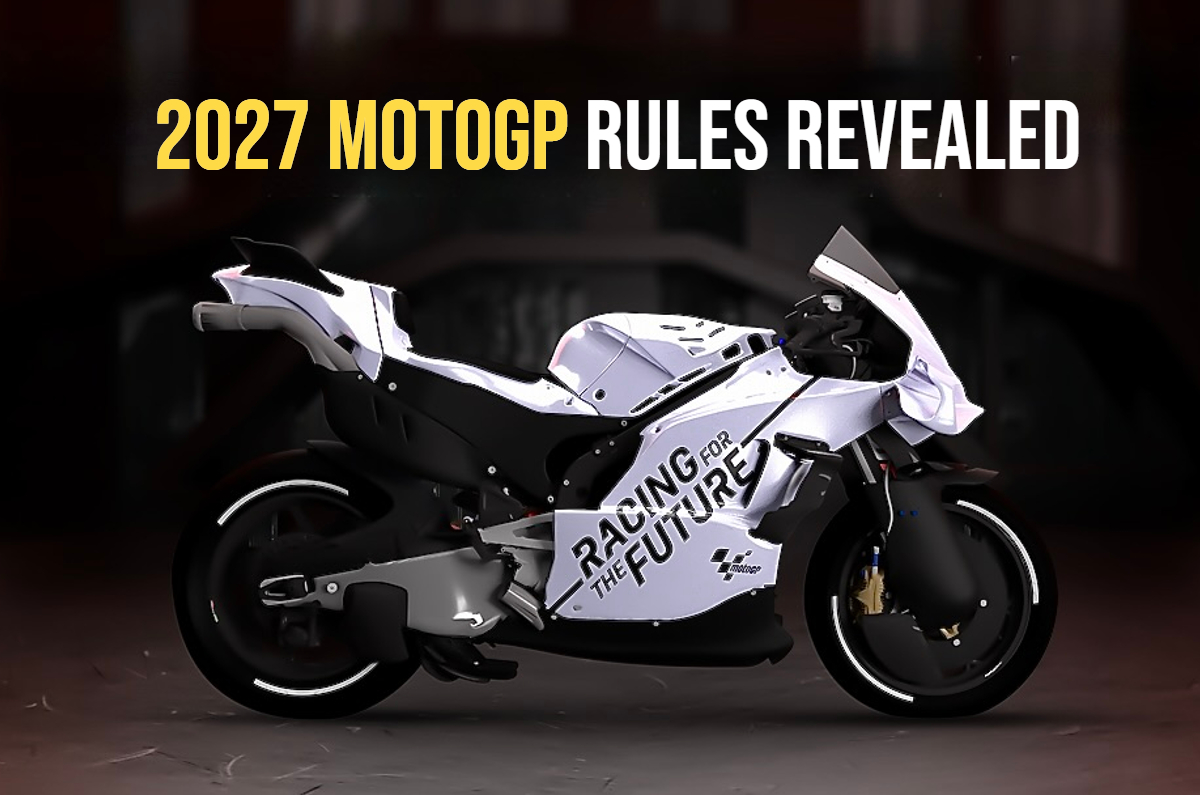
MotoGP says the main aim of the new rules is to make the sport safer and more sustainable.
MotoGP has announced a major rules overhaul that will come into effect in 2027. Changes include downsized 850cc engines and a ban on all ride-height devices.
850cc engines
MotoGP has been using 1000cc engines since 2012. However, engine size will be reduced to 850cc from 2027, while maximum cylinder bore will reduce from 81mm to 75mm. This will decrease top speed, with MotoGP saying the main goal of this change is to make the sport safer and increase mileage. The engines will remain four-stroke.
Organisers are also hoping these changes will make MotoGP engines more road-relevant. Maximum number of engines allowed in a season will reduce to six (for a 20-round calendar) or seven, in the case of a 21 or 22-round calendar.
Aerodynamics
Another key area of change is the aerodynamics. The increasing focus on aero development has seen MotoGP run into the same problem as F1, with several key figures voicing concerns about this impacting the quality of racing.
Starting from 2027, aerodynamics will be reduced and more tightly controlled to minimise these negative effects. The width of the top of the front fairing will be 50mm narrower and the nose will be pushed back 50mm.
All ride-height devices will be banned, including any holeshot devices activated for race starts. This follows the ban on front ride height devices, which was introduced for 2024. Furthermore, rear seat fairing will now be part of the homologation, and teams will only be allowed to update that once per season to control costs.
The current concession system will continue, but all teams will start the 2027 season in Rank B. Teams will be assessed once again mid-season for any change in concessions. Any manufacturer that hasn’t raced in 2026 will start the season in Rank D, permitting unlimited testing, six wildcards and some more benefits.
100 percent sustainable fuel
As already announced earlier, MotoGP will use 100 percent sustainable fuel from 2027. This fuel can either be synthetic or derived from bio sources. Fuel tank capacity will also be reduced from 22 litres to 20 litres for the main race and from 12 litres to 11 litres for the sprint.
GPS data available to all
To level the playing field even further, GPS data from all riders will be made available to all the teams after each session. MotoGP says “providing data to all competitors offers better opportunities to progress for the less performing teams and riders, and at a controlled cost. Access to this range of data will help make the sport safer, and it will also increase the level of insight available to fans around the world.”
Also see:
MotoGP: Bagnaia defeats Marquez to win Spanish GP
